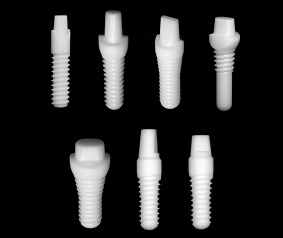Swedish Study Finds Oral Bacteria In Aggressive Pancreatic Tumors
 AD Ratings - Dental
AD Ratings - Dental
 Aug 22, 2025
Aug 22, 2025
Swedish Scientists Discover Link Between Oral Bacteria and Aggressive Pancreatic Tumors
In a groundbreaking discovery, researchers in Sweden have found a strong correlation between oral bacteria and the most dangerous forms of pancreatic tumors. The findings suggest that bacterial DNA commonly found in the mouth may play a role in the development or progression of aggressive pancreatic cysts, potentially opening the door to new, less invasive diagnostic techniques.
Currently, detecting whether a pancreatic tumor is benign or malignant requires invasive surgery and biopsies—a process that is not only taxing on patients but also burdens the healthcare system. This new study could shift that paradigm.
Oral Bacteria Found in Cancerous Pancreatic Cysts
Scientists at Karolinska Institutet, in collaboration with the Science for Life Laboratory, analyzed fluid samples from 105 pancreatic cyst patients. What they found was surprising: higher levels of bacterial DNA—especially DNA from bacteria typically found in the mouth—were consistently present in malignant or high-grade dysplastic cysts.
These findings were published in the journal Gut and are being hailed as a potential leap forward in identifying biomarkers for early cancer detection. Dr. Margaret Sällberg Chen, one of the lead researchers, commented:
“We found that bacterial presence increases as cysts transition toward malignancy. Our hope is that specific bacteria can be used as early indicators of dangerous tumors—helping doctors intervene sooner and avoid unnecessary surgeries for benign cases.”
Why This Matters: Early Detection is Critical
Pancreatic cancer is one of the deadliest cancers due to its late detection. In the U.S. alone, over 56,000 people are diagnosed annually, with a staggering 80% mortality rate due to delayed diagnosis. Often, cysts in the pancreas are harmless, but distinguishing benign from malignant requires surgical intervention.
This new research suggests a future where oral bacteria markers in pancreatic fluid might guide diagnosis, making it less invasive and more accurate. Patients may eventually avoid unnecessary operations if bacteria-based biomarkers can reliably predict which cysts are dangerous.
Sequencing the Bacteria: A Closer Look
To understand the bacterial landscape, researchers sequenced the DNA in 35 of the most bacteria-rich cyst samples. They found notable differences in bacterial composition between benign and malignant cysts, with oral bacteria such as Fusobacterium and Porphyromonas showing up more frequently in the cancerous ones.
One theory is that oral bacteria may be introduced during procedures like endoscopic examinations, where a tube is inserted through the mouth into the pancreas. Interestingly, patients who had undergone such procedures tended to have higher levels of bacterial DNA—suggesting a possible route of transfer.
What This Means for the Future of Cancer Diagnosis
The presence of oral microbes in the pancreas may help scientists understand how microbial imbalances affect tumor growth. It may also encourage doctors to explore pre-procedure oral disinfectants or hygiene protocols to prevent contamination during diagnostic exams.
Dr. Sällberg Chen emphasized that more clinical trials are needed before implementing bacteria-based diagnostic tools, but the outlook is promising:
“If we can reduce the transfer of bacteria during endoscopic exams, or identify specific microbial profiles associated with cancer risk, we could significantly improve early detection and patient outcomes.”
Bottom Line
This study underscores a fascinating link between oral health and pancreatic cancer progression, potentially revolutionizing how we approach early detection. With further research and clinical validation, something as simple as a mouth rinse or a salivary test could one day determine the likelihood of pancreatic cancer—before surgery is even considered.
Trending News
-

The New Face of Plastic Surgery: How Ozempic, Hormones, and Social Media Are Reshaping Aesthetics in 2025 Dave.C
-

Are Your Implants Covered? Understanding Plastic Surgery Complication Insurance David.C
-

How to Treat Pigmentation Changes on Melanin-Rich Skin Post-Eczema David.C
-

10 Reasons Why Metal-Free CeraRoot Zirconia Dental Implants Are Superior Dr. Azadeh Khajavi - Excellence Dental
-

9 Recovery Tips From a Plastic Surgeon (and Patient) to Make Healing Easier Dave.M
